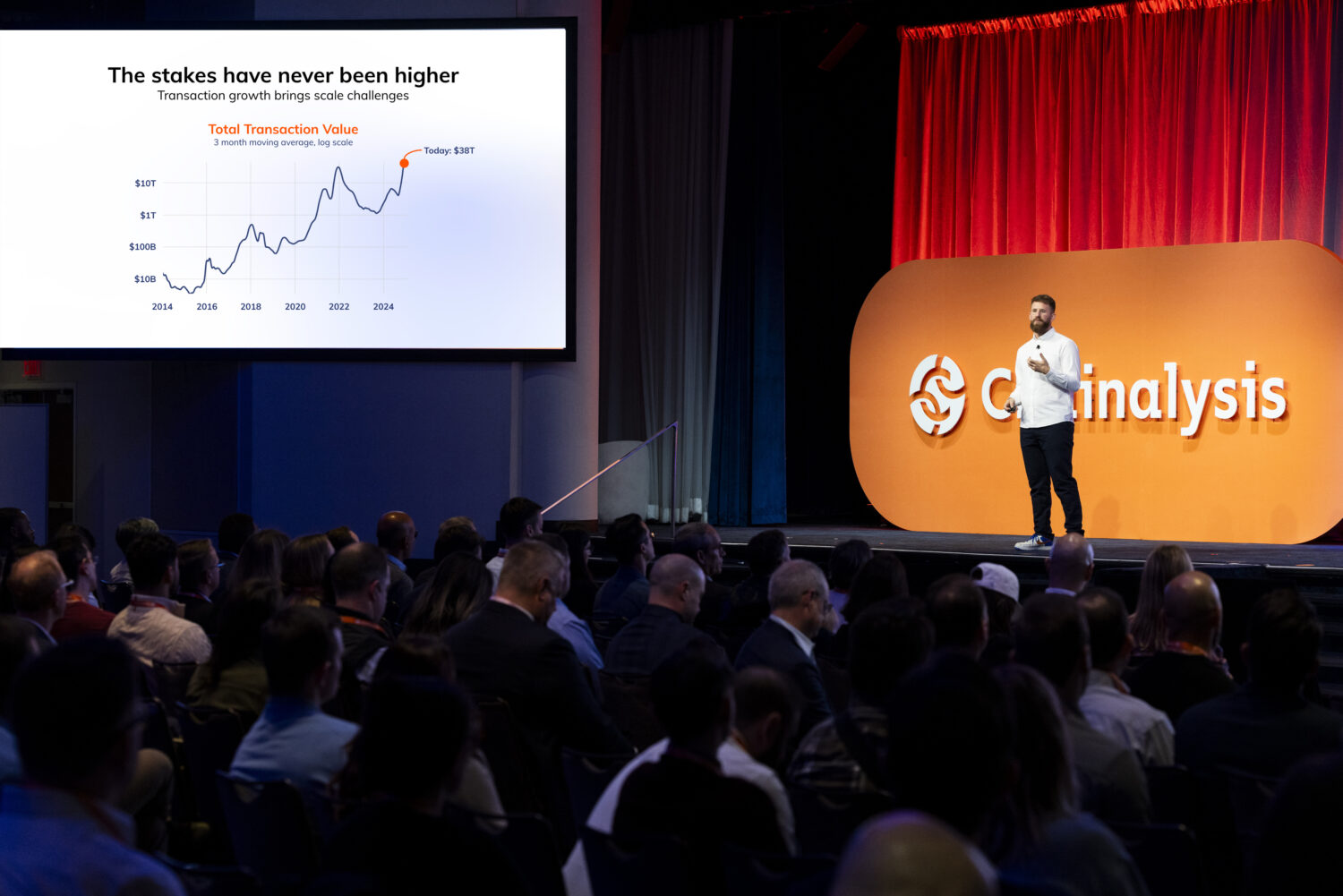The first day of Chainalysis Links NYC 2025 was all about what’s next — examining the future of regulation, innovation, and crypto’s growing role in global finance and security. A central theme throughout the day was how public-private partnerships are driving real-world impact — from dismantling global fraud networks to advancing smart contract security and informing regulatory frameworks. In sessions spanning enforcement, compliance, product innovation, and policy, leaders from government agencies, financial institutions, and crypto-native organizations came together to chart the future of an on-chain economy built on collaboration, transparency, and trust.
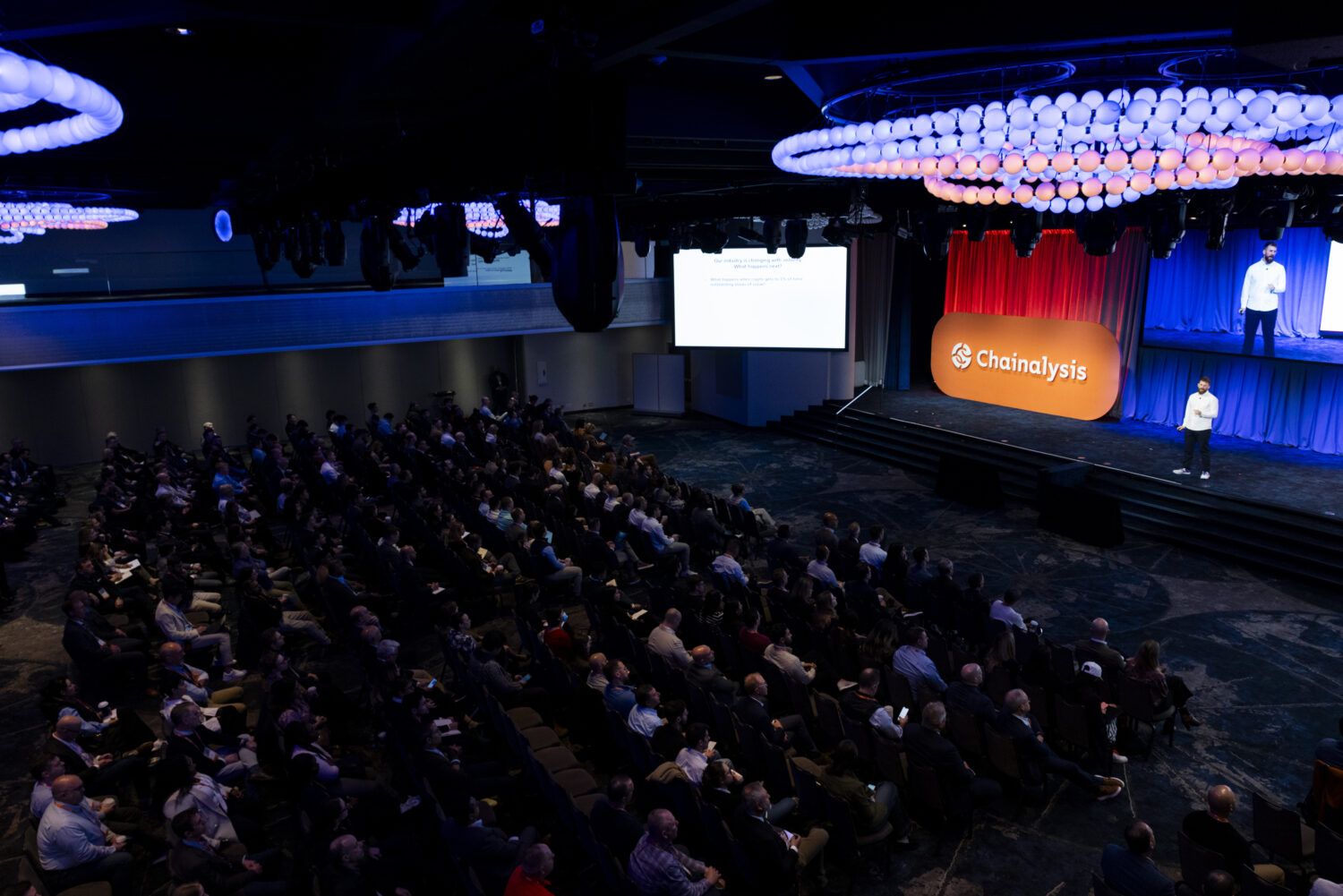
Welcome and product vision: A new chapter for Chainalysis
Jonathan Levin, Chainalysis CEO, kicked off Links 2025 by outlining the company’s evolving mission as the industry rapidly matures, noting that the present was “the most exciting moment” in his ten years building the company. He emphasized crypto’s expanding footprint in global finance, citing an astonishing $38 trillion in blockchain-based value transfer in just the last quarter. Levin acknowledged both the innovation and the challenges — particularly the increasing threats from nation-state hackers like those affiliated with North Korea and AI-driven scams. Speaking to Chainalysis’ recent acquisitions of Hexagate and Alterya, he reaffirmed the company’s commitment to building a safer ecosystem through improved smart contract security, fraud detection, and collaboration with governments and compliance professionals. “How does the government really leverage cryptocurrency technology to build our economy?” He posed. “How can we continue to innovate on the future of financial rails, and how can we build a safer ecosystem altogether as an industry?”

“There is now broad recognition that this is the technology that the future of finance can actually be built on.” —Jonathan Levin, Chainalysis CEO
A briefing from VP of Product Emmanuel Marot followed, unveiling Chainalysis’ latest wave of innovations designed to “turn complexity into clarity.” Marot introduced enhancements across Chainalysis’ suite of tools — most notably a fundamental rebuild of Reactor, now dramatically faster and more intuitive, essentially “a criminal’s worst nightmare.” He introduced Rapid, an AI-powered investigation tool that enables natural language queries, as well as Chainalysis Data Solutions (DS), which delivers custom threat monitoring and analytics. On the compliance side, updates include the new Compliance Insights Dashboard and Asset Intelligence, already trusted by 9 of the top 10 centralized exchanges. Marot also introduced Hexagate, a machine learning-driven tool for proactive smart contract vulnerability detection —“security at machine speed” — and the integration of Alterya to identify fraud early in its lifecycle. With scams growing at an unprecedented rate due to AI, Marot emphasized the importance of responsible data use and noted that Chainalysis is helping exchanges intercept fraud before it spreads. “Data is not sufficient — blockchain transparency is not sufficient,” he stressed. “You need ways to access it. You need ways to act.”
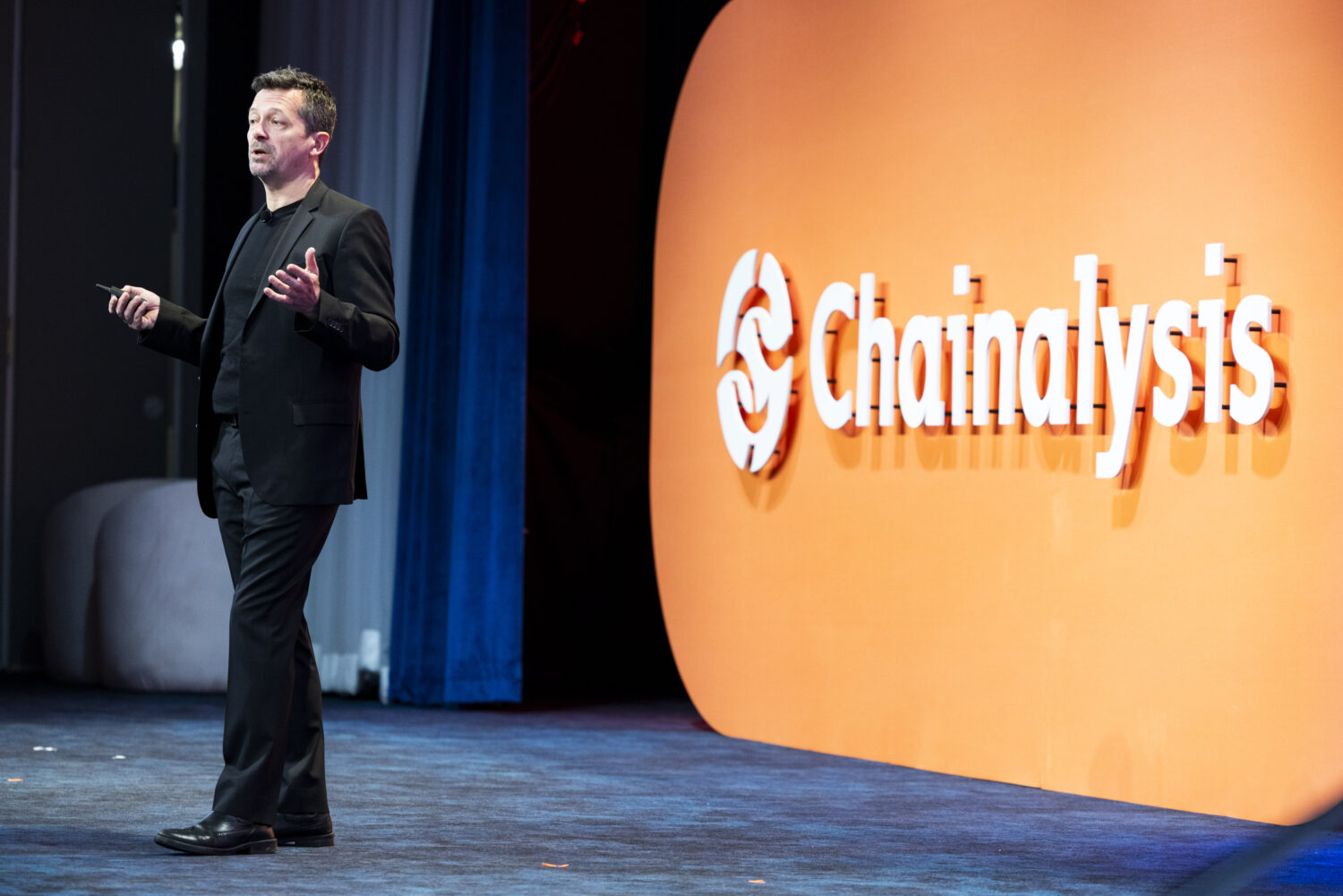
Tigran Gambaryan recounts eight months of wrongful detention
In a deeply moving conversation with WIRED’s Andy Greenberg, former IRS agent and Binance Head of Financial Crime Compliance Tigran Gambaryan discussed his harrowing eight-month detention in Nigeria and the broader dangers facing crypto compliance professionals. His account shed light on the rising political volatility surrounding crypto regulation and the urgent need for global protections. Detailing deplorable conditions and the life threatening health crises he endured, Gambaryan’s story galvanized global support and raised alarms across the compliance community.
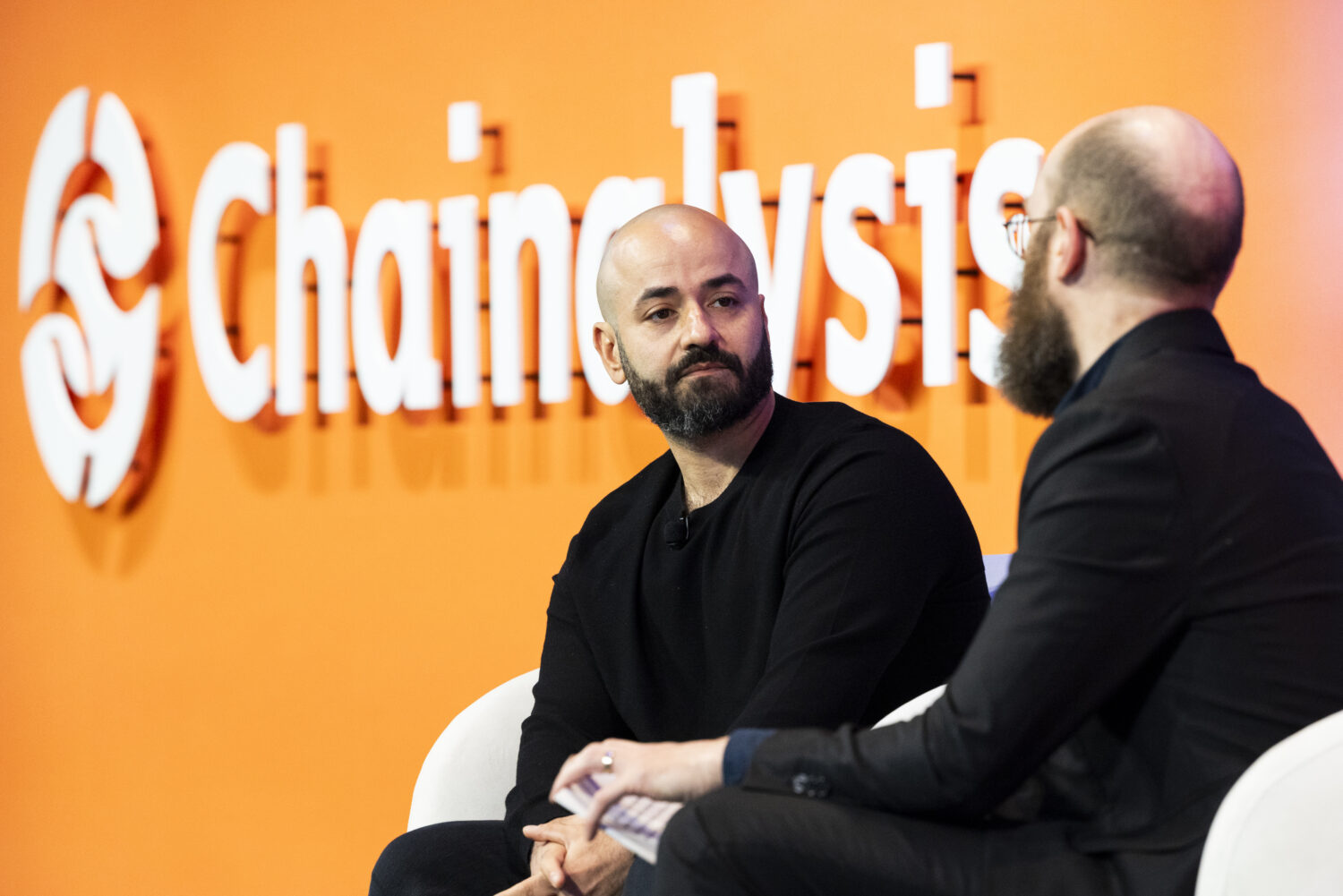
The new administration talks crypto priorities
Bo Hines, Executive Director of the President’s Council of Advisers on Digital Assets, joined Sarah Ward, Chainalysis Chief Legal Officer, to explore the current administration’s crypto policy agenda — including stablecoin legislation, regulatory modernization, and the Bitcoin Strategic Reserve. Hines emphasized a proactive shift in approach: “We’re going to create the most pro-crypto friendly environment in the United States.” With a goal of cementing U.S. leadership in digital finance, the administration is working across agencies, Capitol Hill, and the private sector to ensure innovation can thrive with clear and responsible guardrails. “We’re at the precipice of achieving something phenomenal,” Hines said, underscoring the administration’s belief that digital assets will power the next generation of finance. Through bipartisan momentum and direct engagement with industry, the government aims to position the U.S. as the global hub for digital assets — without compromising financial stability. Hines emphasized the foundational status of bitcoin and its strategic importance for governments.
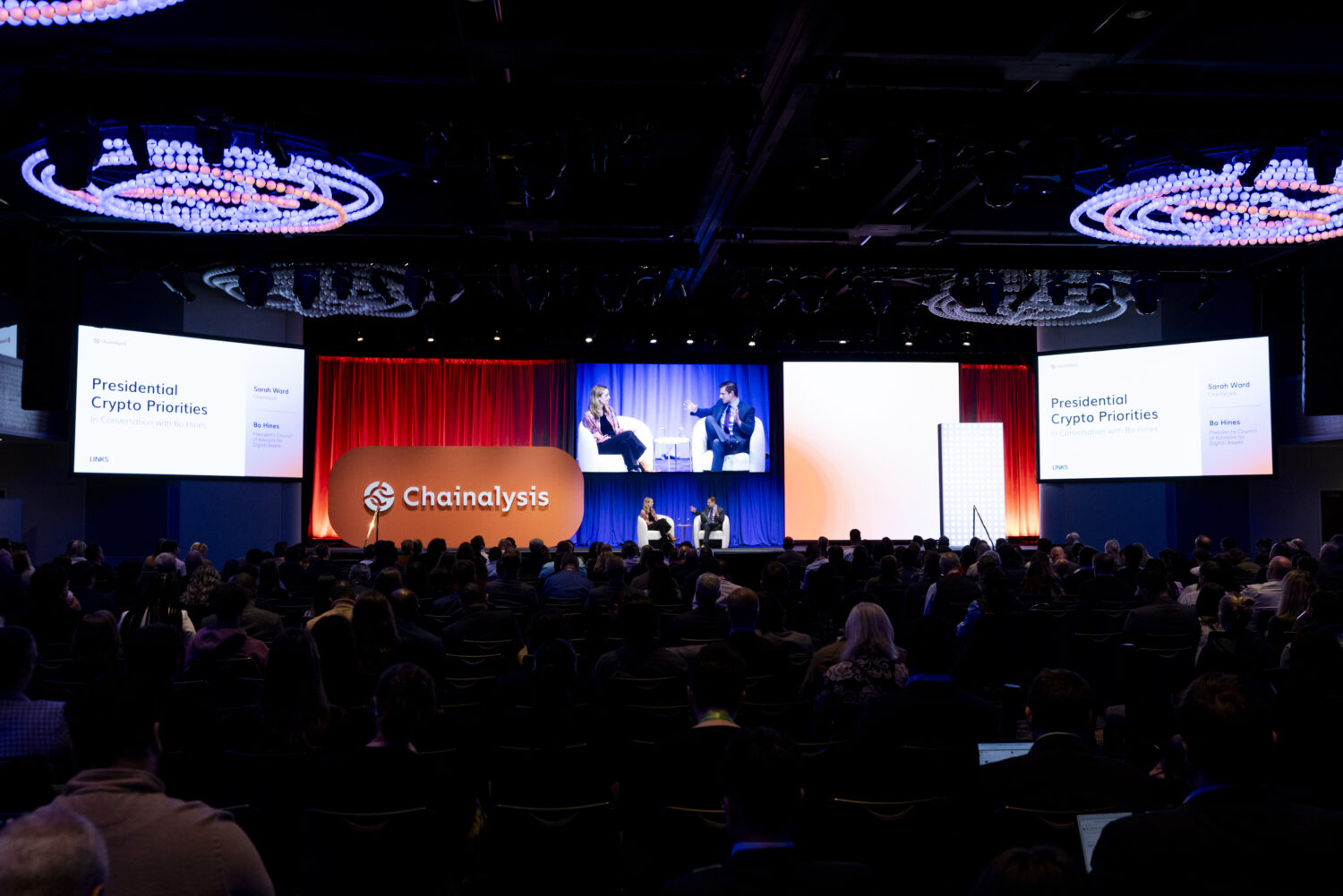
“We understand that bitcoin is unique…it’s the Immaculate Conception.” —Bo Hines, Executive Director of the President’s Council of Advisers on Digital Assets
Introducing Chainalysis Customer Awards
Bas Lemmens, Chief Revenue Officer, launched our inaugural customer awards program, honoring outstanding organizations that have demonstrated innovation, impact, and collaboration in advancing blockchain intelligence. The awards celebrated customers who have creatively leveraged Chainalysis solutions to drive progress, overcome challenges, and inspire excellence across the public and private sectors. From pioneering new compliance frameworks and enhancing threat detection to building impactful public-private intelligence partnerships, these awardees exemplify what’s possible when technology, mission, and purpose align. As Lemmens noted, “It was incredibly difficult to choose winners — these organizations represent the best of what this ecosystem has to offer.”
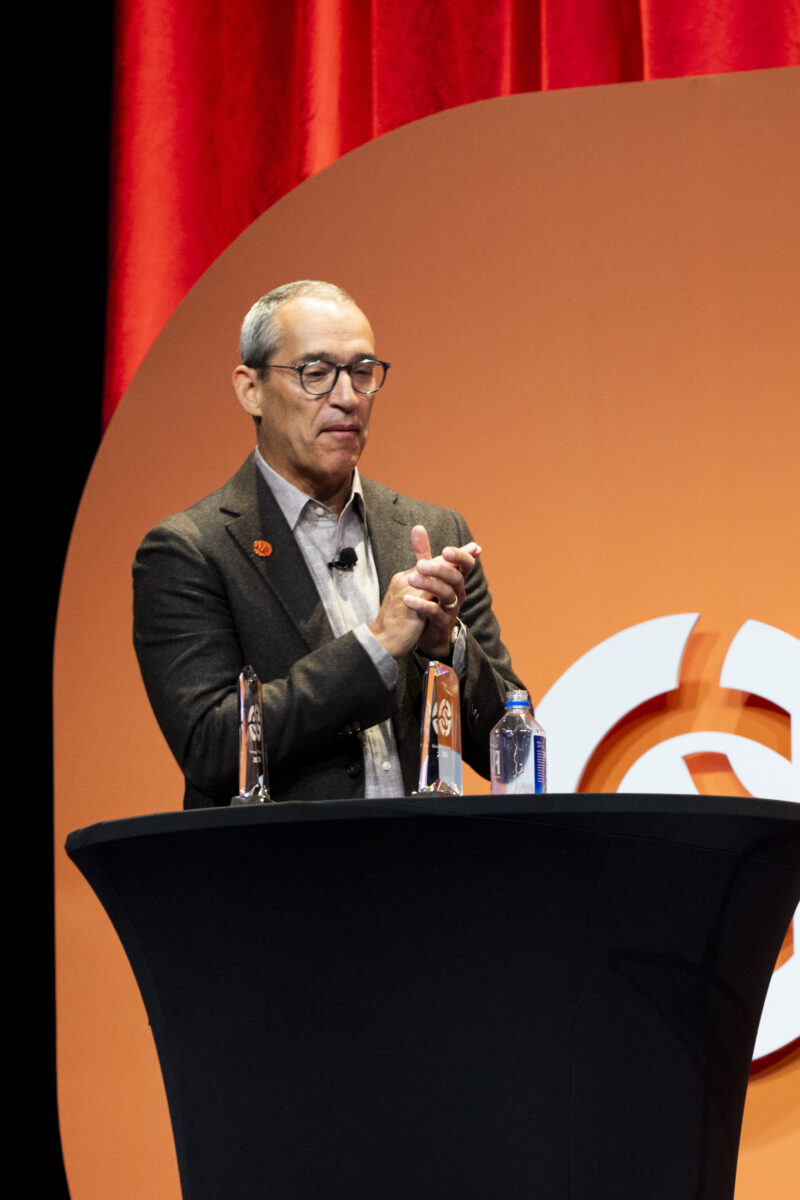
Crypto and Law Enforcement: Challenges, priorities, and partnerships
In a panel moderated by Jim Lee of Chainalysis, law enforcement leaders from New York, London, and Geneva shed light on the evolving challenges of crypto-related crime and the urgent need for stronger global collaboration. NYPD’s Meghann Teubner emphasized that “from a cryptocurrency perspective, the biggest concern is individuals receiving funds in New York City to carry out violence,” discussing the convergence of terror finance and domestic threats. Education and capacity-building remain major hurdles, as “30,000+ officers need to know what a seed phrase even looks like,” she noted. Phil Davies of the UK’s Met Police called public-private partnerships “the center of everything,” while Patrick Ghion of the Geneva Police projected a future where “digital life may be more important than real life,” making blockchain forensics, virtual policing, and international information-sharing essential. Across jurisdictions, the message was clear: partnerships, training, and advanced investigative tools are critical to keep pace with increasingly sophisticated adversaries.
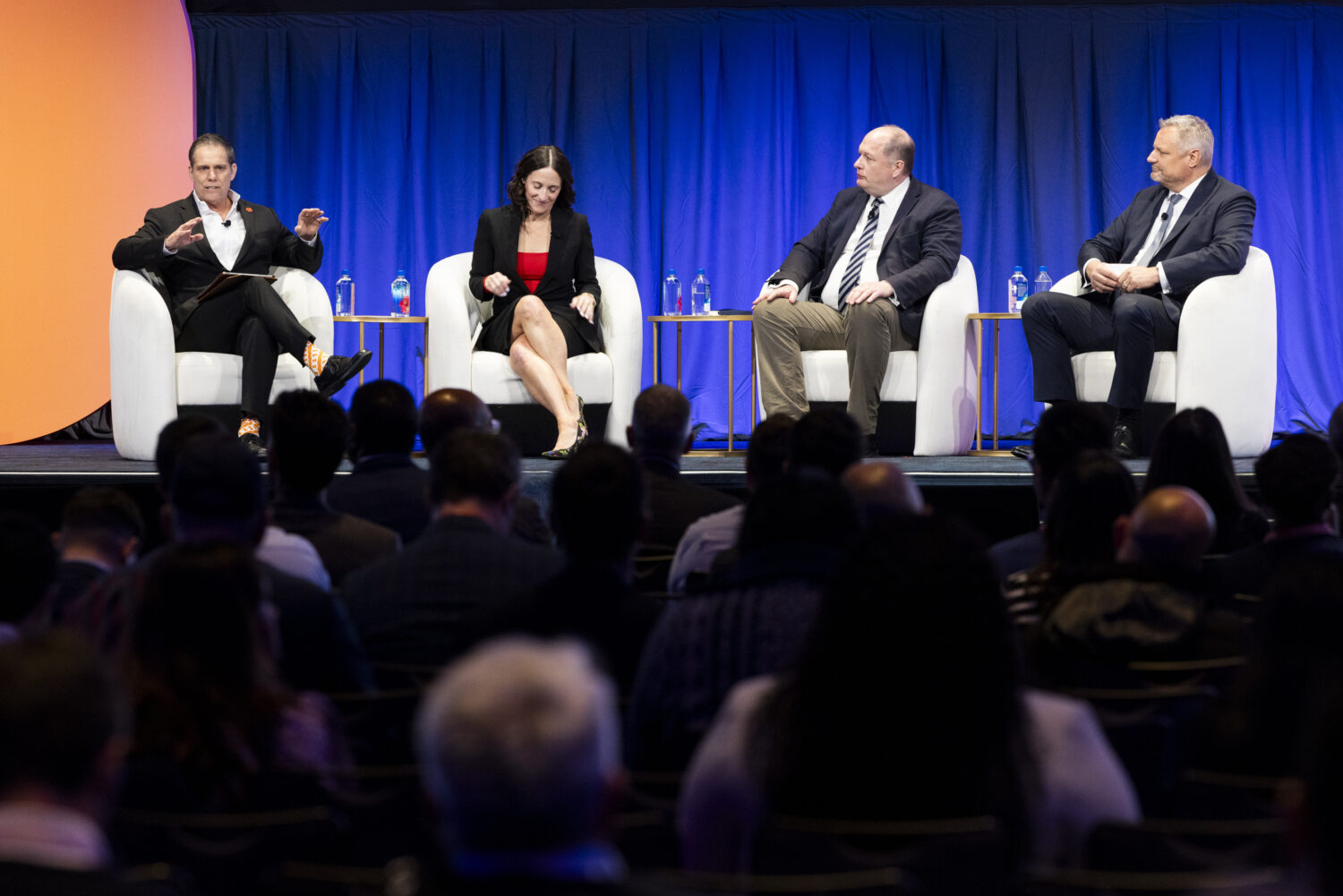
“Communities, not just public safety agencies, defeat terrorism” —Phil Davies, The Metropolitan Police Service
A day in the life of a blockchain hacker
If you don’t think like a hacker, you may already be behind. Chainalysis Niv Yehezkel, Head of Security Products and Aviv Shavit, Security Research Lead at Chainalysis pulled back the curtain on the world of DeFi exploits. The talk walked attendees through real-world examples of how malicious actors identify and exploit smart contract vulnerabilities to siphon user funds — often in a matter of minutes. By dissecting attack patterns and showing on-chain behavior, the session highlighted both the technical sophistication of blockchain hacks and the importance of proactive security measures.
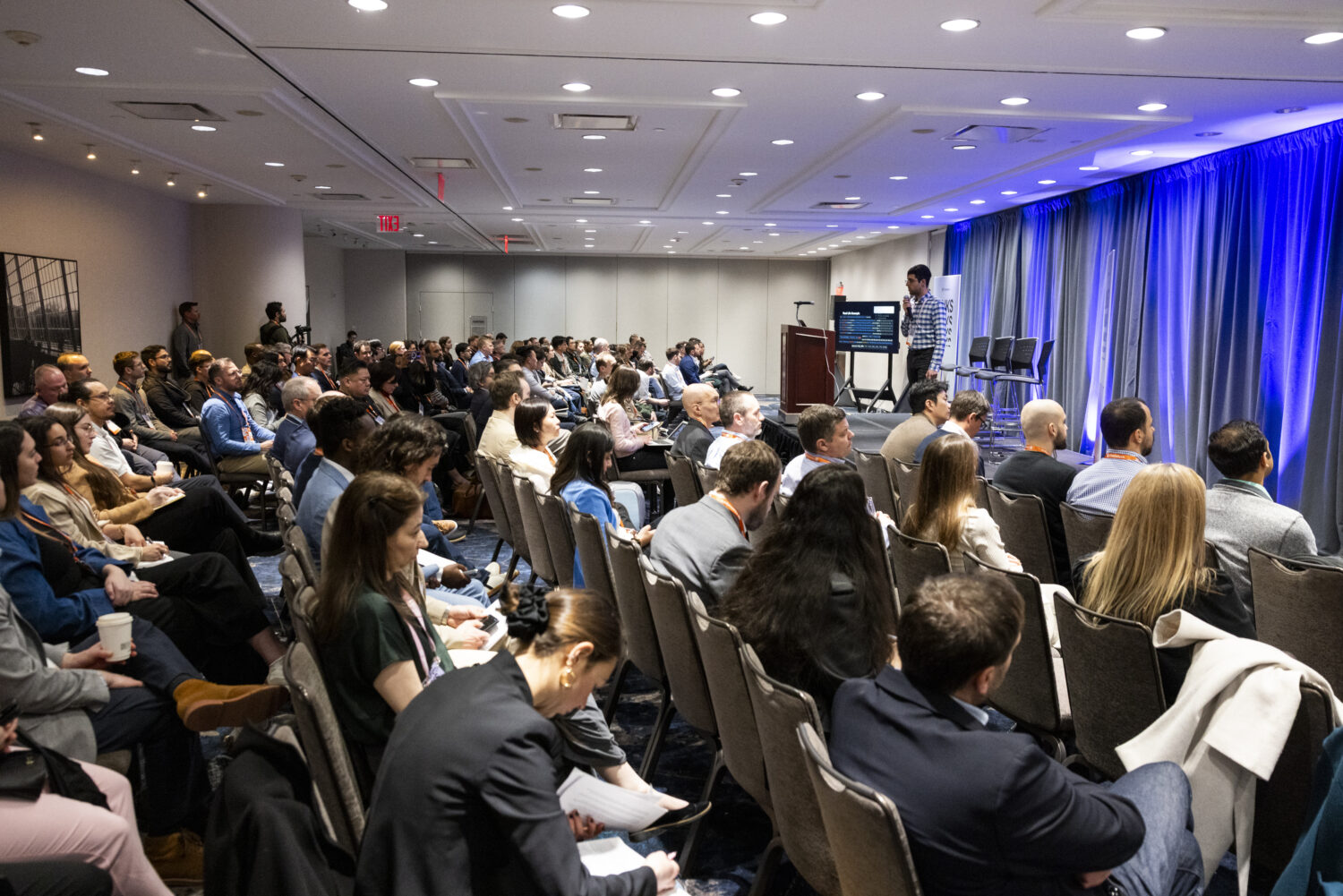
Global finance meets crypto: Regulation, risk, and opportunity
In a panel moderated by Liana Rizzi of Chainalysis, René Michau of Standard Chartered, Gabriel Campa of Towerbank, and Carlos Salinas of MoraBanc explored the footprint of crypto in traditional finance. From adapting to new regulations like MiCA to managing volatility across market cycles, the panelists shared how their institutions are integrating digital assets while maintaining rigorous compliance and risk standards. “We haven’t stopped being a bank just because we’re dealing with a new asset class,” said Michau. Campa spoke of the importance of instinct and experience in risk detection: “If it doesn’t make sense, trust your instinct — it probably isn’t right.” Salinas encouraged a client-first approach, urging institutions to “talk to your clients — understand this new type of wealth.”
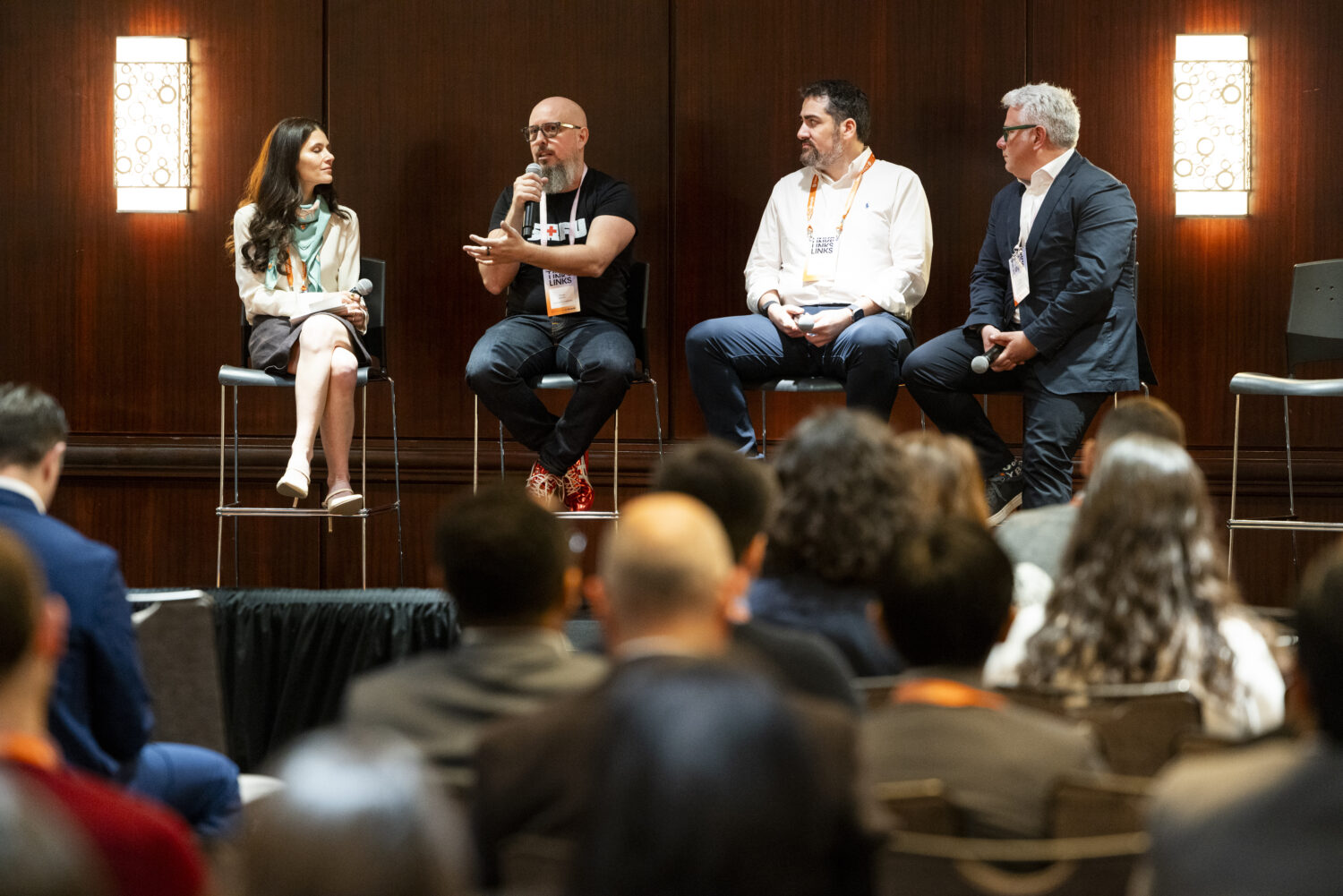
The speakers emphasized that through bull or bear markets, successful adoption hinges on transparency, education, and building trusted relationships in both regulated and emerging environments.
Fortifying defenses against the threat of pig butchering scams
In a sobering yet solution-focused panel moderated by Adam Hart of Chainalysis, experts from law enforcement, private sector investigations, and fraud prevention dove deep into the explosion of pig butchering scams targeting global consumers.
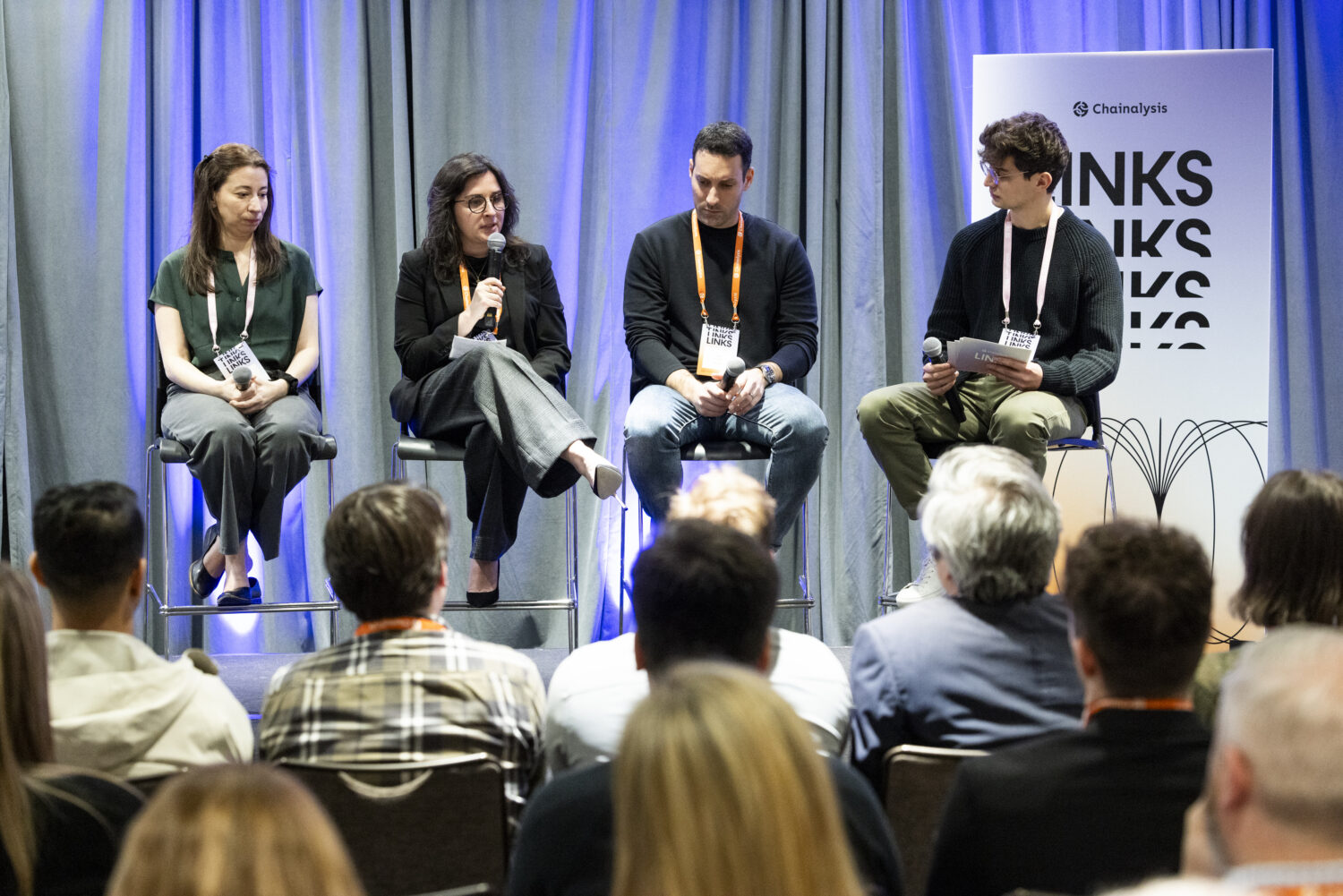
Alona Katz, Chief of the Virtual Currency Unit at the Brooklyn District Attorney’s Office, described the human toll from her front-line vantage: “I think of my people in Brooklyn as under constant financial assault.” Katz shared how her small team has seized over 300 scam websites, using domain disruption to “break the spell” that keeps victims sending money. Erin Fracolli, Global Head of Intelligence and Investigations at Binance, emphasized the increasing psychological manipulation and technological sophistication behind these schemes, including AI-generated deepfakes. She also highlighted the emotional complexity of intervention, noting victims often return to scammers even after being warned: “It’s incredibly difficult…we’ve had users go back two weeks later and send more money.” Elad Fouks, Head of Fraud Products at Chainalysis, provided a data-driven view of the problem’s scope and scale, describing a dramatic rise in scam infrastructure: “It’s not science fiction — scammer kits and AI-generated content are shifting the economics of fraud. We’re seeing hypergrowth in pig butchering.” Fouks outlined how his team is using AI to scan millions of websites and trace scam-related infrastructure before victim funds hit exchanges.
The panel called for deeper public-private collaboration, smarter victim outreach, and stronger action from upstream platforms like social media networks. As Fracolli noted, “There’s no single solution — the scale of the problem requires a solution of similar scale.”
Stablecoins in the spotlight
In a panel moderated by JP Jednorski compliance and policy leaders from Circle, PayPal, and 1Money discussed the evolution, adoption, and regulation of stablecoins. Kristen Hecht, Chief Compliance Officer at 1Money, emphasized the need for purpose-built networks: “Investors are seeing the value of instantaneous, low-cost payments — no middlemen, no banking hours.”
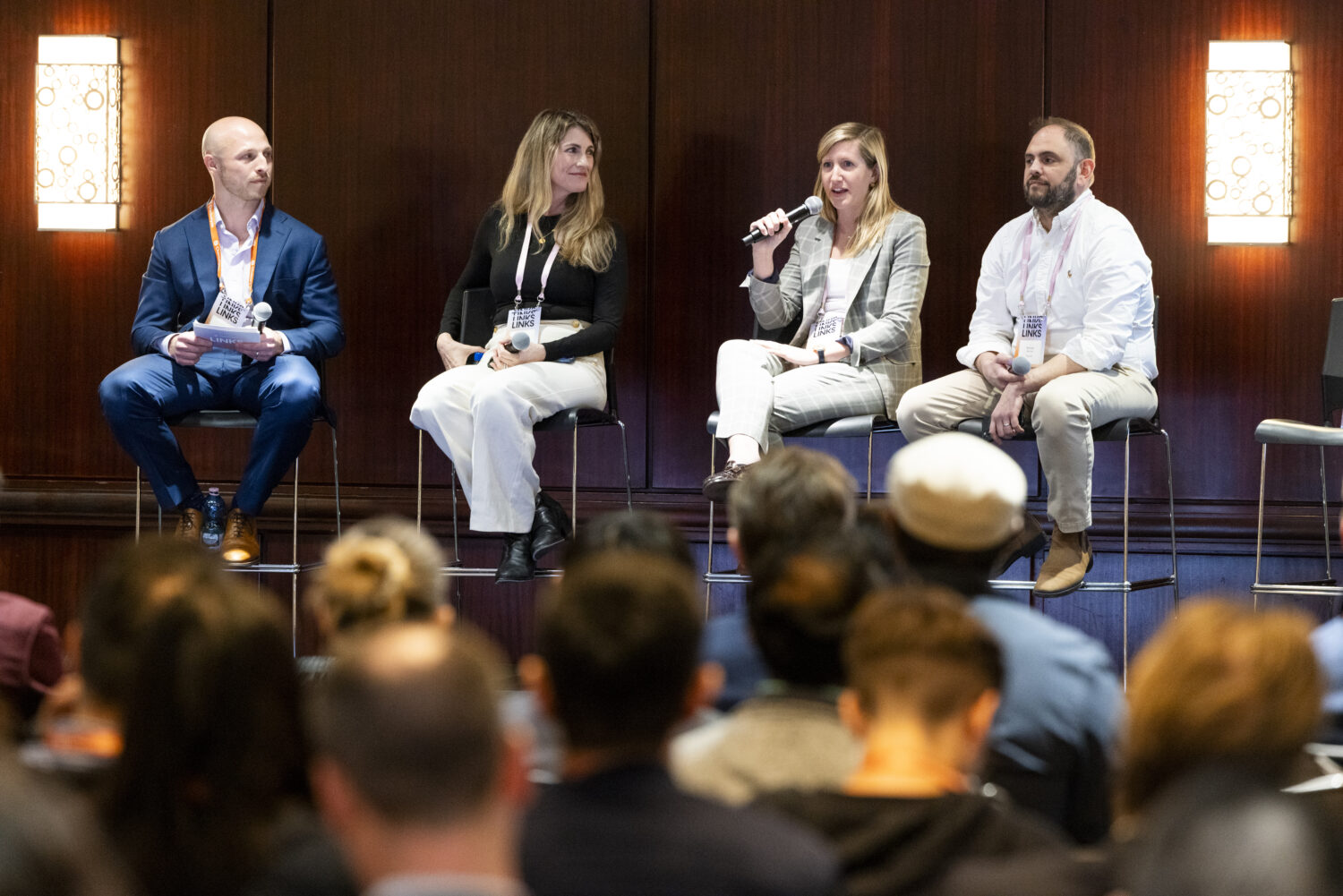
Caroline Hill, Director of Global Policy and Regulatory Strategy at Circle, spoke of a shift in market dynamics: “We’re no longer just a bridge between TradFi and crypto — these systems are integrating.” Mike Aleman, Head of Global Financial Crime Blockchain Innovation at PayPal, echoed that sentiment, noting that stablecoins are evolving beyond trading pairs into next-gen payment tools. On compliance, Aleman stressed, “Regulation makes everything easier — it sets the rules of the road.”
Panelists agreed that robust AML controls, monitoring, and clear federal legislation are critical to mass adoption. “Compliance is a competitive advantage,” said Hecht. “It’s how companies get investment and build trust.”
Lessons from Links 2025 NYC
The opening day of Links NYC 2025 echoed a resounding message: partnership is power. From product innovation and enforcement collaboration to regulatory clarity and real-time threat detection, every session reinforced the idea that crypto is no longer niche — it’s infrastructure. And the path forward demands shared language, shared tools, and shared responsibility.


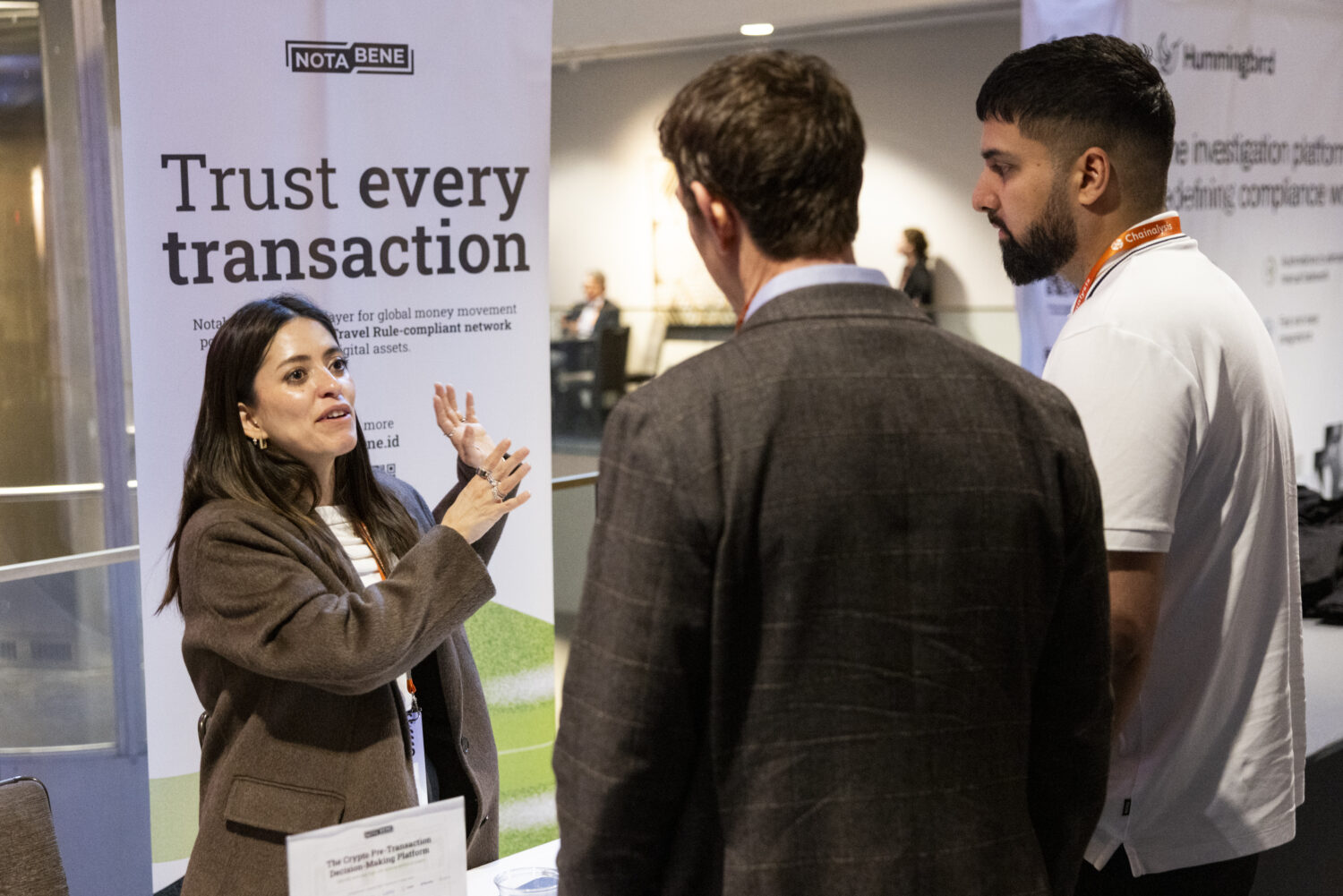
A heartfelt thanks to our incredible sponsors: AWS, BRG, Carahsoft, Cloudburst Technologies, Fireblocks, Guidehouse, Hummingbird, Microsoft, Notabene, SonarX, and Siren for their generous support of this year’s event. Your commitment to innovation and collaboration helps make gatherings like this possible. We’re grateful to have such forward-thinking partners alongside us as we build the future of blockchain together.
Stay tuned for Day 2 of Links NYC 2025 for more practical insights, in-depth conversations, and a closer look at what’s next in crypto.
Missed out on attending Links or want to relive your favorite sessions?
The digital premiere of Links 2025 will replay a curated set of sessions. This free 2-hour experience will include CEO Jonathan Levin’s keynote on the state of the industry, an exclusive new session covering global policy developments, and our expert-led demos with real-world case studies covering investigations, compliance, data solutions, fraud prevention, and Web3 security. We’re hosting the virtual event multiple times to accommodate global time zones. Register for free and watch at your convenience.
This material is for informational purposes only, and is not intended to provide legal, tax, financial, or investment advice. Recipients should consult their own advisors before making these types of decisions. Chainalysis has no responsibility or liability for any decision made or any other acts or omissions in connection with Recipient’s use of this material.
Chainalysis does not guarantee or warrant the accuracy, completeness, timeliness, suitability or validity of the information in this report and will not be responsible for any claim attributable to errors, omissions, or other inaccuracies of any part of such material.
